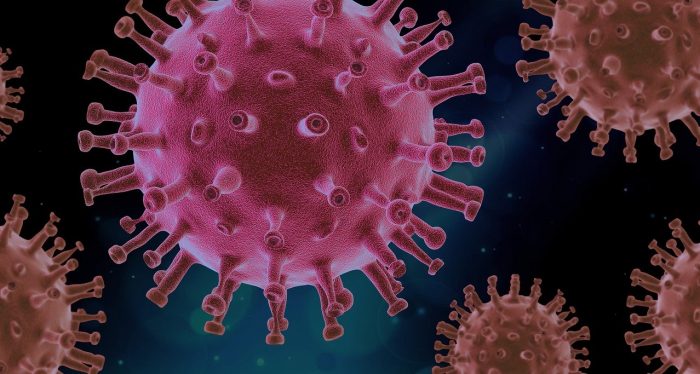US DOL Seeking Input on Ensuring Equity in Employment for People With Disabilities
The U.S. Department of Labor is seeking input on ideas for ensuring equity in employment policies and programs for people with disabilities from historically underserved communities. Please consider sharing your ideas, reviewing community input, and commenting on others’ ideas. Your feedback will be used to identify solutions for overcoming barriers to employment for people with disabilities from diverse backgrounds, communities, and identities. It will also inform future programs and funding opportunities that equitably deliver employment services and supports to all.
Submissions are open through Monday, April 26, 2021. Visit here to submit your ideas.
Modernizing Long-Term Services And Supports And Valuing The Caregiver Workforce
ATI Advisory, supported by the Robert Wood Foundation, has conducted research to create a package of recommended legislative and administrative reforms around long-term services and supports (LTSS) and the caregiving workforce. The goal of their proposed reforms is to increase access to home and community-based services (HCBS), reduce the institutional bias in Medicaid, and create a strong caregiving workforce.
ATI Advisory’s proposed reforms include:
- Providing states with financial relief through an enhanced federal match for Medicaid HCBS
- Modernizing long-standing eligibility policies that make it difficult for individuals to receive care in the community and at home
- Investing in the direct care workforce by increasing compensation, elevating the work, and implementing policies that engage, retain, and develop workers
Visit here to read the full article.
Pa. COVID-19 Update: Hospitalizations Rise by more than 100 in a Week
Decision-Making for Adults with Disabilities Webinar — Wednesday, April 21, 2021
Control over your finances involves making many decisions — for example, when you buy a car, choose an apartment, or negotiate a salary. But you don’t have to make those decisions by yourself. In fact, many of us use a network of support, including family, friends, and trusted advisors. In this webinar we will discuss the differences among supported decision-making, representative payee, guardianship, and powers of attorney.
Attendees will learn:
- Different ways people with disabilities can get help in decision-making about health care and money
- How to incorporate supported decision-making
- Ways to self-advocate for the control in decisions you want and need
- Practical next steps and resources for help.
You can register here for this webinar.
This webinar is part of Money Talks, a free series hosted by Pennsylvania Assistive Technology Foundation on financial empowerment for people with disabilities. If you are a person with a disability, a family member of someone who has a disability, an advocate, an educator, or a service provider, this series is for you. Sessions will include 30-45 minutes of interactive learning and 15 minutes for questions. Each session will be fully accessible, and recordings and slides will be made available. Learn more, view previously recorded webinars, and register for this month’s webinar at Money Talks.
Incident Management Discussion Scheduled for RCPA IDD Division Meeting Thursday, May 6, 2021
The Office of Developmental Programs (ODP) staff Bill Posavec and Katie-Marie Wilson will be joining RCPA members during our Intellectual & Developmental Disabilities (IDD) Division meeting scheduled Thursday, May 6, 2021 from 12:00 pm–3:00 pm in order to have a discussion regarding the Incident Management Bulletin, including Q&A. We are looking forward to a robust discussion, and in order to prepare for the meeting, we are asking members to submit questions in advance to Carol Ferenz, Director, IDD. We request that you send your questions by close of business Thursday, April 29, 2021.
If you have not yet registered for the IDD Division meeting, you can do so here.
Everyday Lives 2021 Virtual Conference: Schedule and Speaker Lineup Now Available!
This year’s Everyday Lives Conference merges the Office of Developmental Programs (ODP’s) annual conference lineup into a single month-long event that offers two additional Everyday Lives recommendation tracks. Topics include Community of Practice for Supporting Families Regional Collaborative, Technology Innovation, Dual Diagnosis, Racial Equity, and Employment. Sessions conducted by self-advocates for self-advocates will be available throughout. Registrants have access to all conference sessions. View and download the conference program via the Everyday Lives schedule.
Submit your Photos and Videos to be shown at the Conference! ODP is seeking photo and video submissions showing individuals with disabilities using technology in their everyday lives! Submissions will be shown in an introductory video during the Technology Innovation portion of the event to be held on Wednesday, May 26, 2021. To submit your content, please visit here.
Conference Schedule and Topics:
- Tuesday, May 11, 2021 : Conference Introduction & Racial Equity
- Tuesday, May 18, 2021–Wednesday, May 19, 2021 : Community of Practice for Supporting Families Regional Collaborate
- Wednesday, May 26, 2021 : Technology Innovation
- Wednesday, June 2, 2021–Thursday, June 3, 2021 : Dual Diagnosis*
*Dual Diagnosis track in collaboration with PA Office of Mental Health and Substance Abuse Services (OMHSAS) - Thursday, June 10, 2021 : Conference Closing & Employment**
**Also featuring a panel for siblings of individuals with disabilities
Certificates for training hours will be available. Registrants will receive emails containing instructions for joining the virtual event closer to the date. For more information and to register for the Everyday Lives 2021 Virtual Conference, please visit the Everyday Lives website.
Autism & The Courts: Northeast Regional Panel Tuesday, April 27, 2021
Committed to access to justice for Pennsylvanians with an autism spectrum disorder (ASD), the Pennsylvania Supreme Court, along with the Department of Human Services (DHS) is pleased to announce an upcoming virtual forum — Autism and the Courts — a Regional Discussion aimed at learning about court experiences from individuals with an ASD. An informational flyer can be accessed here.
Spearheaded by Supreme Court Justice Kevin Dougherty on behalf of the Court and Bureau of Supports for Autism and Special Populations Director Regina Wall, the virtual roundtable for the Northeast Region will be held on April 27, 2021. In addition, as part of this effort, during the COVID-19 pandemic, the courts have added information and resources for families supporting an individual with autism on the Pennsylvania Courts frequently asked questions web page.
Join Pennsylvania Supreme Court Justice Kevin Dougherty along with DHS and representatives from the judiciary, law enforcement, healthcare, social work, and advocacy communities and those living with and/or supporting someone with ASD for a virtual roundtable on challenges faced by individuals with autism as they seek access to justice. Click Here to Register!
RCPA Member Webinar on April 26 Featuring Jen Swails, Budget Secretary

The RCPA Member Update webinar scheduled for Monday, April 26, 2021 from 2:00 pm–4:00 pm will include a presentation from Secretary of the Budget Jen Swails, who will discuss several issues, including the impact of the American Rescue Plan on state revenue and programs, particularly those programs related to health and human services. There will also be an opportunity for discussion and question and answers.
Ms. Swails has a strong background in health and human services, having served as a senior analyst for various state government fiscal offices prior to being named Budget Secretary. She has presented before at RCPA meetings, and we are pleased to have her available for this discussion.
Please register here to attend this webinar. We look forward to your participation!
DOH Extends Pause on Johnson & Johnson Vaccinations Following FDA/CDC Recommendation
FOR IMMEDIATE RELEASE
April 15, 2021
Harrisburg, PA – The Pennsylvania Department of Health today notified all COVID-19 vaccine providers that the pause in administering doses of the Johnson & Johnson (Janssen) vaccine will be extended until April 24 or until updated guidance is provided from the Centers for Disease Control and Prevention (CDC) and Food and Drug Administration (FDA).
Earlier this week, the department recommended a pause in administering Johnson & Johnson vaccine until April 20 to give the CDC and FDA time to review six incidents of rare blood clots that occurred within two weeks of receiving Johnson & Johnson vaccine. The CDC’s Advisory Committee on Immunization Practices held an emergency meeting yesterday that ended without taking a vote to change the current recommendation to pause administering the Johnson & Johnson vaccine. Another meeting is expected within 10 days.
During the meeting, the CDC acknowledged that one of the six cases being studied involves a 26-year-old Pennsylvania woman who recovered after treatment at a New Jersey hospital. The CDC is not releasing personal information in the case. These six cases occurred in women between 18 and 48 who were among the 6.8 million Americans who received the Johnson & Johnson vaccine. Out of the more than 6.6 million vaccine doses that have been administered in Pennsylvania, only 247,063 doses have been Johnson & Johnson.
This announcement shows that the federal oversight process of a vaccine’s safety and effectiveness is working, and all steps are being taken to protect Americans. “The safety procedures built into the vaccination process are working and should instill confidence in the safety and effectiveness of the available COVID-19 vaccines,” Acting Secretary of Health Alison Beam said. “I urge individuals who have appointments scheduled to receive a Pfizer or Moderna vaccination to keep those appointments.”
People who received the Johnson & Johnson vaccine who develop severe headache, abdominal pain, leg pain or shortness of breath within three weeks of their vaccination should contact their health care provider. For more information, please see the CDC/FDA guidance.
The department also has sent communications to stakeholder groups and others who have received the Johnson & Johnson vaccine as a part of a special vaccination initiative.
While vaccine supply from the federal government remains limited, the Department of Health is working to ensure the vaccine is provided in a way that is ethical, equitable and efficient. To keep Pennsylvanians informed about vaccination efforts:
- The Your Turn tool provides a way to register to be alerted when it’s your turn to be vaccinated.
- A commonwealth COVID-19 vaccination guide explains the current process for getting one. Pennsylvanians with questions about the vaccination process can call the Department of Health hotline at 1-877-724-3258.
- Vaccine provider map to find a COVID-19 vaccine provider near you.
- All of the locations that received vaccine and how much they have received can be found on the COVID-19 Vaccine Distribution webpage.
- Vaccine dashboard data can also be found on the website to find more information on the doses administered and showcase demographic information.
- Pennsylvanians can provide feedback on the Pennsylvania COVID-19 Interim Vaccination Plan by clicking on the Plan Feedback Form square under Popular Vaccine Topics here.
- Frequently asked questions can be found here.
The Wolf Administration stresses the role Pennsylvanians play in helping to reduce the spread of COVID-19:
- Wash your hands with soap and water for at least 20 seconds or use hand sanitizer if soap and water are not available.
- Cover any coughs or sneezes with your elbow, not your hands.
- Clean surfaces frequently.
- Stay home to avoid spreading COVID-19, especially if you are unwell.
- If you must go out, you are required to wear a mask when in a business or where it is difficult to maintain proper social distancing.
- Download the COVID Alert PA app and make your phone part of the fight. The free app can be found in the Google Play Store and the Apple App Store by searching for “COVID alert pa”.
Updated Coronavirus Links: Press Releases, State Lab Photos, Graphics
- Daily COVID-19 Report
- Press releases regarding coronavirus
- Latest information on the coronavirus
- Photos of the state’s lab in Exton (for download and use)
- Coronavirus and preparedness graphics (located at the bottom of the page)
- Community preparedness and procedures materials
MEDIA CONTACT: Barry Ciccocioppo


















